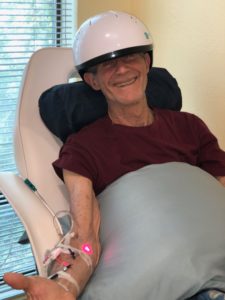Neuro-Degeneration / Parkinsons / Alzheimers
It’s one thing to lose your energy, or your waistline, or your looks.
It’s another thing to lose your brain.
Losing one’s brain with close-to-end of life aging was once an accepted occurrence. Tough on the spouse, tough on the kids.
In the past few decades we’ve seen a different phenomenon:
- Alzheimer’s “Pre-Senile” Dementia occuring earlier and earlier, sometimes in the mid-fifties
- the same with Parkinson’s Disease
- increasing number and earlier onset of Amyotrophic Lateral Sclerosis (ALS)
- an epidemic of Neuro-degeneration in infants called Autism
The phenomenology is so overwhelming we’ve been searching for laboratory markers and aggressive, early treatments which may, if not cure, certainly mitigate the progression of these horrible conditions.
While Big Pharma would love to find the ‘magic pill’, the Center for Wellness & Integrative Medicine continues to work with colleagues around the world in both diagnostics and innovative Regenerative therapies for these disabling conditions.

For centuries, herbs like macuna and bacopa have been used to improve circulation to the brain. Nutrients like Acetyl-l-Carnitine have also demostrated value. While the use of IV glutathione and alpha lipoic acid are now common-place in neuro-degenerative conditions, clearly more work needs to be done.
Intra-nasal sub-muscosal regenerative injections of exosomes have benefited many; however, the cost and repetitive nature often becomes a limiting factor.
Since 2010, studies from around the world have demonstrated benefit of low-level laser and LED light therapy in the following conditions in rat models and humans:
- recent ischemic stroke recovery
- cognitive impairment, pain, insomnia, and mood disturbances in patients with traumatic brain injury
- chronic pain syndrome with central sensitization
- Parkinson’s disease
- Depression
- cognitive and emotional enhancement in healthy adults
If you have someone you love with a NeuroDegenerative Condition, please make the no-charge appointment to consult with Dr Tom. It’s a rapidly evolving field, and earlier is certainly better.

